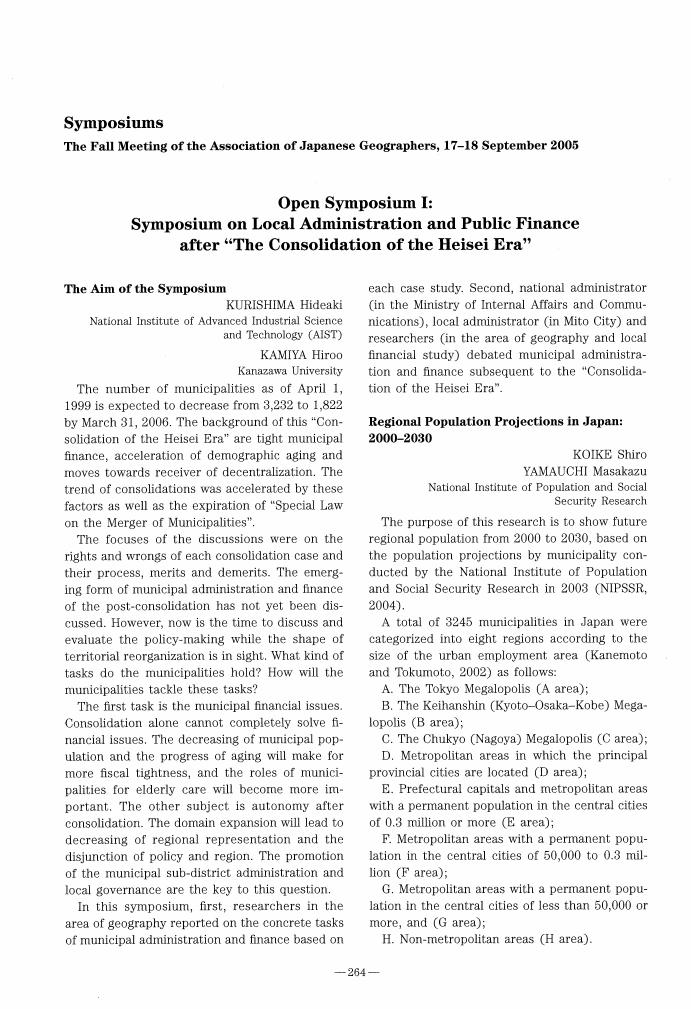- 著者
- Hiroo KAMIYA Honami KAGEYAMA Reiko KINOSHITA
- 出版者
- The Association of Japanese Geographers
- 雑誌
- 地理学評論 (ISSN:13479555)
- 巻号頁・発行日
- vol.79, no.12, pp.619-628, 2006-10-01 (Released:2008-12-25)
- 参考文献数
- 11
From the Japanese demographic data, it is evident that the category of single women is increasingly constituting a larger segment of the population. Thus far, policies pertaining to housing and social benefits have been targeted at nuclear families based on the “Asian style welfare state, ” and minimum attention has been given to single women. Therefore, in this paper, we attempt to address the factors affecting single women's residential choices by using in-depth interviews. In addition, in order to confirm the research results, triangulation methodologies are applied. Triangulation methods are conducted in two ways. First, my female colleague checks my (male) interpretations against the interview records. Second, my (male) interpretations are compared with the profiles appearing in a non-fiction work by a female writer. As a result, we observe that the residential choices of single women in Tokyo have the following characteristics. 1) Single women are rather myopic in their attitude toward work-and housing-related issues due to their unstable working conditions. 2) They are likely to value easy access to a railway station in their residential choice due to the geographical concentration of job opportunities in the city center and the long working hours. 3) They have limited housing options because most of the available housing stocks cater to nuclear families. Through the triangulation methodologies, other factors affecting their housing choices have been suggested: social contact with their parents and their relationships with their boyfriend. Additionally, the 1996 legislation reform for equal job opportunities and the effects of economic globalization on job opportunities for single women may have affected their working environment.
- 著者
- Hideaki KURISHIMA Hiroo KAMIYA Shiro KOIKE Masakazu YAMAUCHI Shin KAJITA Teruo HATAKEYAMA Kaoru MITANI Tadahiko MUSHA
- 出版者
- The Association of Japanese Geographers
- 雑誌
- 地理学評論 (ISSN:13479555)
- 巻号頁・発行日
- vol.79, no.5, pp.264-267, 2006-04-01 (Released:2008-12-25)
1 0 0 0 OA Local Administration Reforms and Geography
- 著者
- Hiroo KAMIYA Shin KAJITA Kaoru MITANI Shin KAJITA Hiroo KAMIYA Hideaki KURISHIMA Shin'ichiro SUGIURA Yoko IIJIMA
- 出版者
- The Association of Japanese Geographers
- 雑誌
- 地理学評論 (ISSN:13479555)
- 巻号頁・発行日
- vol.76, no.5, pp.414-418, 2003-04-01 (Released:2008-12-25)

